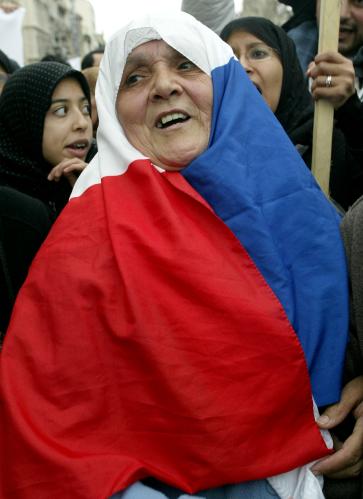In our chapter in The Arab Awakening: America and the Transformation of the Middle East on the changes to the regional balance of power in the Middle East, Daniel Byman and I warned that the internal changes taking place within so many of the countries of the Arab world as a result of the great Arab awakening could cause various realignments to the geo-politics of the region. One of the possible realignments we noted was a possible deepening of the Sunni-Shi’a divide. Unfortunately, a variety of recent events seem to suggest that that may be what is happening.
Syria continues to descend deeper into civil war. One should never count out the Asad regime, if only because the Alawi community in which it is rooted believes they will be slaughtered by the majority Sunni population if they lose power and they control many of the key military and security formations in the country. That’s why we have seen so many Syrian military formations remain cohesive and willing to inflict heavy bloodshed on civilians. It could be enough to allow the regime to prevail, and the massacres taking place in Homs may presage just such a bloody crackdown, one very much along the lines of the infamous massacre Bashar al-Asad’s father conducted against a similar Sunni opposition at Hama thirty years ago.
If the regime can’t crush the opposition quickly, the likely alternative scenario is protracted civil war as the largely Sunni opposition battles the residual forces of the Alawi minority and potentially other groups as well.
Meanwhile, next door in Iraq, the country is teetering on the brink of renewed civil war as well. Even before the last American troops departed, Prime Minister Maliki triggered a severe crisis by reacting to a terrorist attack purportedly aimed at him by going after a number of the top leaders of his principal rival, the largely Sunni Iraqiyya party. The immediate tensions have abated somewhat, largely because Iraqiyya felt compelled to end its boycott of the government only because its ministers could not afford to abandon their patronage networks in the ministries they control—an important source of leverage for the prime minister.
But this crisis was a product of the deeper, structural problems in Iraqi politics—problems that were only beginning to be addressed before the premature withdrawal of American troops tore the cast from the Iraqi body politic long before its shattered bones had properly healed. Although Maliki was surprised by the response from both the Kurds and the Shi’i Sadrist trend—both of whom sided unexpectedly with Iraqiyya—he largely won this round, and continues to consolidate power and refuse to make concessions to his political rivals in ways virtually guaranteed to produce future crises. With American peacekeepers now gone, it is only a matter of time before one or another such crisis pushes Iraq back into civil war itself.
As if that wasn’t bad enough already, the civil war in Syria appears to be feeding the flames in Iraq in a way common to civil wars—a topic Daniel Byman described in his chapter on civil wars. A trickle of refugees is now flowing from Syria to Iraq. In future weeks, we could see Syrian opposition fighters seeking sanctuary among their Sunni tribal brothers on the Iraqi side of the border. Indeed, most of Iraq’s Sunnis want to aid the Syrian opposition, just as most Iraqi Shi’a feel a similar sense of solidarity with the Alawis—and why the Iraqi government has been so despicably supportive of the Asad regime.
Of course, both of the regimes in Iraq and Syria are supported by Iran, Damascus willingly and Baghdad grudgingly. That is both a product of their common Shi’a identity and an element reinforcing their own chauvinistically pro-Shi’a policies.
The real danger is that none of this has been lost on the Sunni Arab states of the region, including the Saudis, Jordanians, Egyptians and others. They have long feared a “Shi’a crescent” stretching from Hizballah in Lebanon through Syria through Iraq to Iran or even Bahrain. While this geo-strategic concept is greatly exaggerated at present, it is more accurate than it was five years ago, and the more that the Sunni states treat these countries as if they are a single strategic entity, the more that they will create a self-fulfilling prophecy.


Commentary
Shifting Sands in the Middle East
February 14, 2012